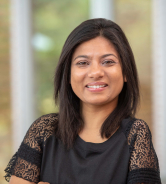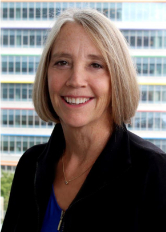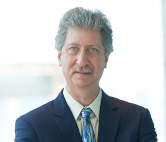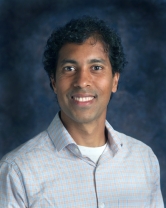Assistant Professor of Pathology and Laboratory Medicine
Perelman School of Medicine at the University of Pennsylvania
Contact Information
Perelman School of Medicine at the University of Pennsylvania
Department of Pathology and Laboratory Medicine
Richards Medical Research Laboratories, D202
3700 Hamilton Walk
Philadelphia, PA 19104
Email: Shefali.SetiaVerma@pennmedicine.upenn.edu
More Info
Professor of Pathology and Laboratory Medicine
Professor of Genetics
Perelman School of Medicine at the University of Pennsylvania
Chief Scientific Strategy Officer
Director, Raymond G. Perelman Center for Cellular and Molecular Therapeutics
Katherine A High Presidential Scholar Endowed Chair in Cell and Gene Therapy
Children’s Hospital of Philadelphia (CHOP)
Contact Information
Children’s Hospital of Philadelphia
Department of Pathology and Laboratory Medicine
Colket Translational Research Building, Rm. 5060
3501 Civic Center Boulevard
Philadelphia, PA 19104
Tel: 267-426-0929
Fax: 215-590-3660
Email: davidsonbl@chop.edu
Research Expertise
Keywords:
Neurodegenerative Disease; RNA biology; Gene therapy; Animal models; Human treatment
More Info
Dr. David Weiner is among the 2014 Top 50 "Most Influential People in Vaccines." Dr. Weiner’s research in the area of Molecular Immunology has focused extensively on the development of gene-based vaccines and immune therapies.
Read more
The lab of James M. Wilson, MD, PhD, director of the Penn Gene Therapy Program, has published a proof-of-principle animal study that reduces harmful accumulation of proteins in a rare lysosomal storage disease through direct gene therapy.
Read more
Barbara and Edward Netter Professor in Cancer Gene Therapy
Perelman School of Medicine at the University of Pennsylvania
Founding Director, Clinical Cell and Vaccine Production Facility (CVPF)
Contact Information
Center for Cellular Immunotherapies
Smilow Center for Translational Research, Rm. 8-114
3400 Civic Center Boulevard
Philadelphia, PA 19104
Tel: 215-898-9120
Email: levinebl@pennmedicine.upenn.edu
Cell, gene, and biologic therapy clinical trial development, manufacturing, and testing and lymphocyte growth, activation, and homeostasis
More Info
Assistant Professor of Pathology and Laboratory Medicine at the Hospital of the University of Pennsylvania
Perelman School of Medicine at the University of Pennsylvania
Contact Information
Department of Pathology and Laboratory Medicine
Perelman Center for Advanced Medicine
8-111 South Pavilion Extension
3400 Civic Center Boulevard
Philadelphia, PA 19104
Email: vijay.bhoj@pennmedicine.upenn.edu
Research Expertise
Dr. Bhoj's research expertise lies in the area of cellular immunotherapy. In particular, he has experience in preclinical development of immunotherapy that employ engineered immuno-receptors (e.g.
More Info
The peer-reviewed journal Human Gene Therapy is celebrating its 25th anniversary in 2014 by publishing a series of Perspectives by top researchers in the field of cell and gene therapy. Five "Pioneer" scientists from the Perelman School of Medicine at the University of Pennsylvania are among the 21 investigators who will be honored throughout the next 12 months.
Read more
A $1.5 million gift to the University of Pennsylvania has established the Barbara and Edward Netter Associate Professorship in Cancer Gene Therapy at the Abramson Cancer Center. Bruce Levine, PhD, a faculty member in the department of Pathology and Laboratory Medicine in the Perelman School of Medicine and the director of the Clinical Cell and Vaccine Production Facility, has been appointed to the Barbara and Edward Netter Associate Professor in Cancer Gene Therapy.
Read more
Investigators in the Gene Therapy Program, Department of Pathology and Laboratory Medicine, directed by James M. Wilson, MD, PhD, have demonstrated that a single dose of an adeno-associated virus (AAV) expressing a broadly neutralizing flu antibody into the nasal passages of mice and ferrets gives them complete protection and substantial reductions in flu replication when exposed to lethal strains of H5N1 and H1N1 flu virus. These strains were isolated from samples associated from historic human pandemics – one from the infamous 1918 flu pandemic and another from 2009.
Read more






